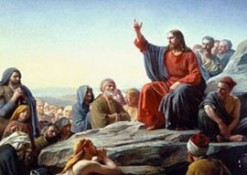
August 24, 2010

“Where are the Republican leaders who will reject pandering and prejudice?” wailed The Washington Post in its most recent editorial in support of Cordoba House mosque near Ground Zero.
Like the controversy over the mosque, the Post editorial reveals the two Americas we have become, uncomprehending of and hostile to each other, even as we drift apart.
To the Post, opposition boils down to three arguments, all of them “objectionable.” The first is a wrong-headed belief “that the terrorists who destroyed the World Trade Center and killed almost 3,000 people there in 2001 really did represent Islam.”
The second is that, as many families of 9/11 victims associate the terrorists with Islam, to build a mosque near the scene of the massacre would be sacrilegious and wounding.
The third is cynical politics. As two-in-three Americans oppose the mosque, siding with them and savaging supporters of Cordoba House is to run unconscionably with the crowd.
None of these arguments is acceptable, says the Post, for they represent misunderstanding, prejudice or “repugnant” politics.
What the Post is saying is that opponents of the mosque are all either bigoted ignoramuses or political panderers.
Quite a statement, when a Time poll finds that 61 percent of Americans oppose the mosque and 70 percent believe that to build it near Ground Zero would defile hallowed ground.
”(T)he right response to misunderstanding and prejudice,” said the Post, “is education, not appeasement.”
“Without prejudice, we are tabula rasa, blank slates, upon which any ideology may be written, including what James Burnham called the ideology of Western suicide—liberalism.”
In short, rather than yield to ignorance, bigotry and demagoguery, the Post will undertake to tutor us on how to think correctly.
This is a pure extract of liberal ideology. Few better examples of faculty-lounge obtuseness to the feelings of the people among whom they live are to be found. Yet, the editorial has a point.
For, in Webster’s, there are several definitions of “prejudice.”
The most pejorative one is “an irrational attitude of hostility directed against an individual, a group, a race.” Another definition, however, is simply a “preconceived judgment or opinion.”
It is this idea of prejudice that Edmund Burke endorsed:
“Many of our men of speculation, instead of exploding general prejudices, employ their sagacity to discover the latent wisdom which prevails in them. If they find what they seek, and they seldom fail, they think it most wise to continue the prejudice, with the reason involved, than to cast away the coat of prejudice, and to leave nothing but the naked reason.”
“Naked reason,” pure rationalism, permeates the Post editorial, which ignores that vast realm of sentiments, such as patriotism and love, that reside in the terrain between thought and feeling.
“The heart has reasons that the mind knows not,” said Pascal.
True conservatives are people of the heart who use the weapons of the mind to defend the things of the heart.
Why would Americans be reflexively skeptical and wary of Islam?
We were born a Christian nation, an extension of Christendom. For most of us, it is part of our DNA. And for a thousand years, our ancestors fought a war of civilizations with Islam.
In the name of Islam, Muslim fanatics massacred 3,000 of us. In our media, the names commonly associated with Islam are al-Qaida, Hamas, Hezbollah, Moqtada al-Sadr, Ahmadinejad, Ayatollah Khomeini, Osama bin Laden and the Taliban.
What are sins in Christianity—adultery and homosexuality—are capital crimes in Islamic countries. From the Copts in Egypt to the Chaldeans of Iraq, Christians are persecuted and purged in the Middle East. Few remain in the old Christian towns of Jerusalem, Nazareth and Bethlehem. Christian missionaries in Islamic countries risk stonings and beheading. Muslims are attacking Christians in Nigeria, Sudan, the Caucasus, Palestine, Iraq, Pakistan, Malaysia, Indonesia and the Philippines.
Are there scores of thousands of patriotic American Muslims, hundreds of millions of decent, peace-loving Muslims around the world?
Undeniably true.
Yet one would have to be obtuse not to understand that a Western nation that opens its doors to mass migration from the Islamic world is taking a grave risk with its unity and identity.
An apprehension about that is what Burke called the “latent wisdom” of a people.
This is not an argument for war with Islam, but for recognition that “East is East and West is West” and America cannot absorb and assimilate all the creeds of mankind without ceasing to be who we are.
Prejudice is prejudgment. And if prejudgment is rooted in the history and traditions of a people, and what life has taught us, it is a shield that protects. Only a fool would reject the inherited wisdom of his kind because it fails to comport with the ideology of the moment.
“Prejudice,” wrote Burke, “is of ready application in the emergency; it previously engages the mind in a steady course of wisdom and virtue, and does not leave the man hesitating in the moment of decision, skeptical, puzzled and unresolved.”
Without prejudice, we are tabula rasa, blank slates, upon which any ideology may be written, including what James Burnham called the ideology of Western suicide—liberalism.